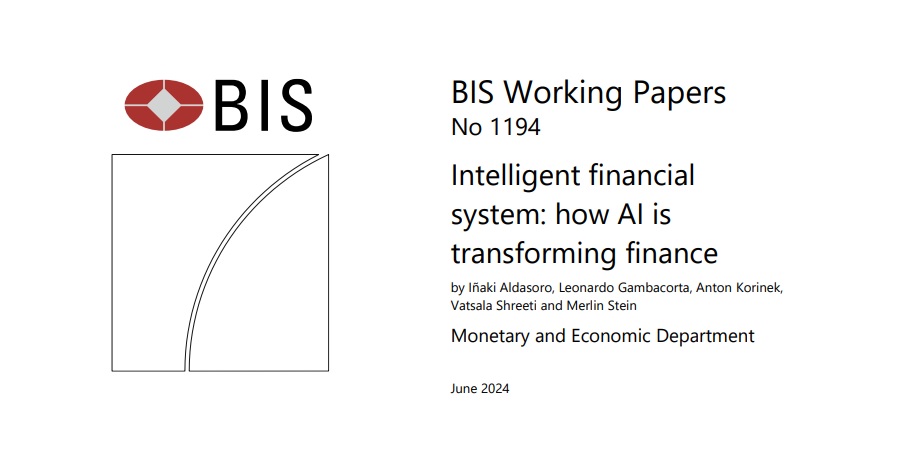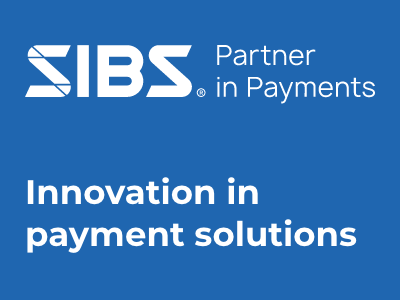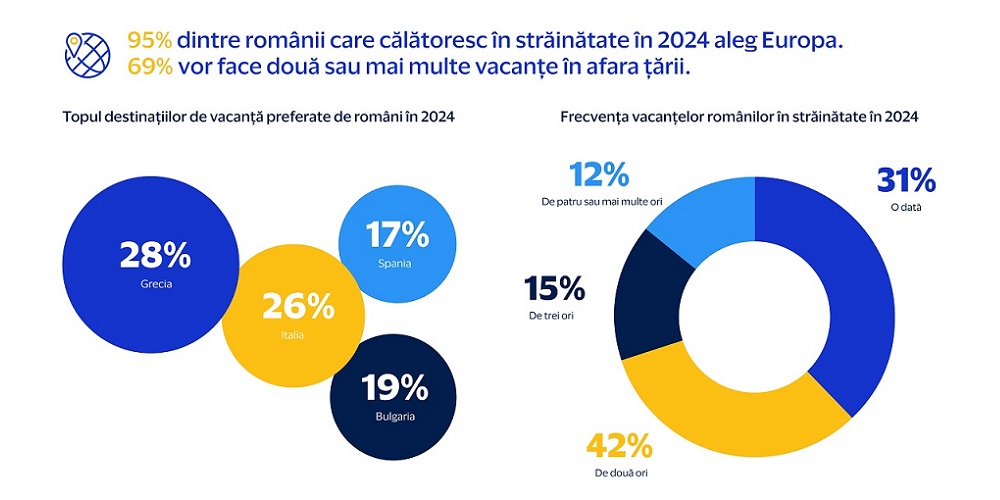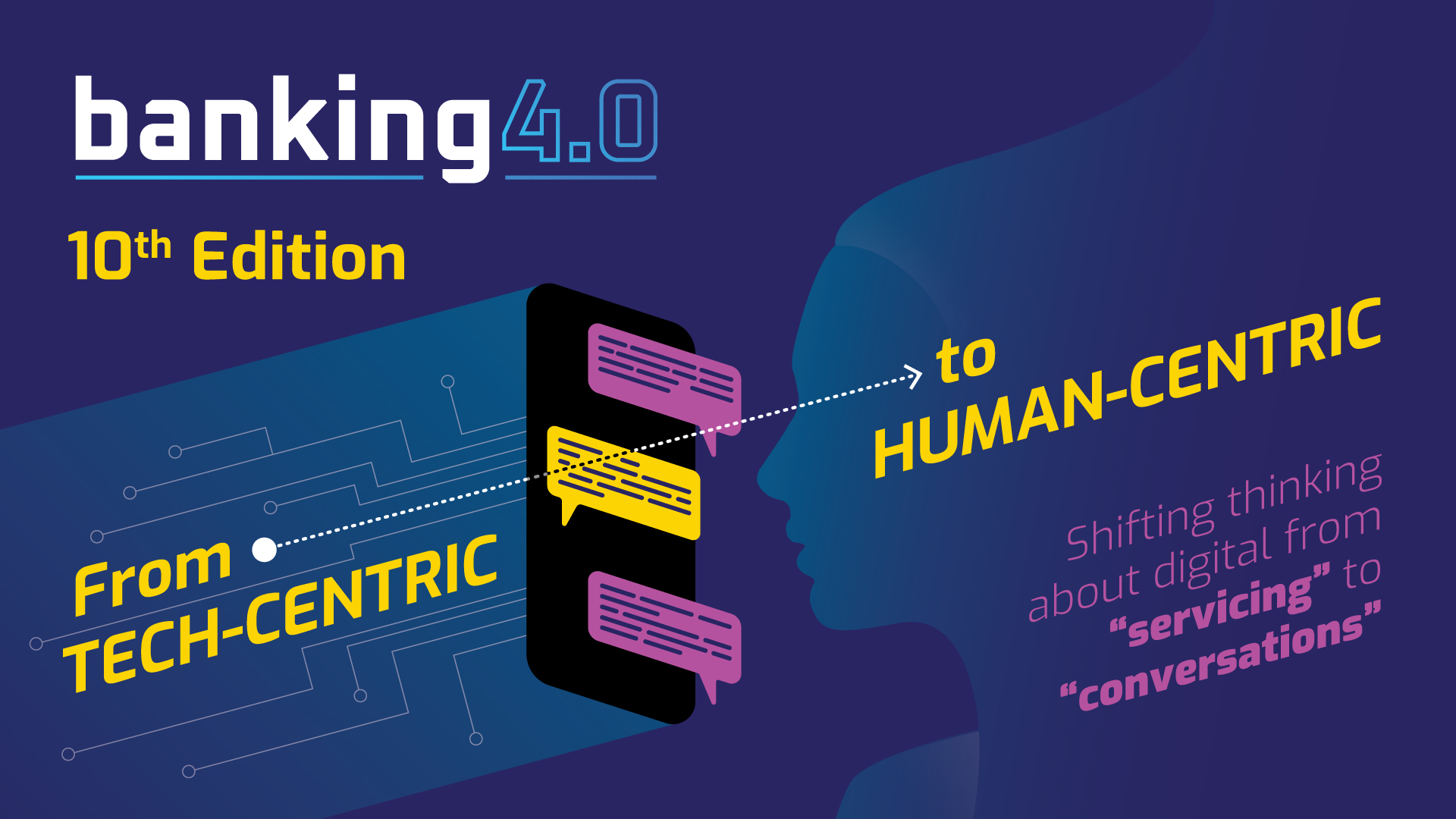How AI is transforming finance in financial intermediation, insurance, asset management and payments – BIS paper

The BIS has today released a paper on ‘Intelligent financial system: how AI is transforming finance. The paper is authored by Iñaki Aldasoro, Leonardo Gambacorta, Anton Korinek, Vatsala Shreeti and Merlin Stein. They analyse how generative AI (GenAI) and emerging AI agents as well as, more speculatively, artificial general intelligence will impact finance. „We focus on four functions of the financial system: financial intermediation, insurance, asset management and payments.”
Focus
Like the brain of a complex organism, the financial system processes vast amounts of dispersed information to guide the allocation of resources in the economy. The capacity of the financial system to perform this function has been shaped in large part by the computation and information-processing technology available. After examining how progressive generations of artificial intelligence (AI), from rule-based systems to machine learning to generative AI, have transformed the financial sector, we evaluate how to prepare for the coming arrival of AI agents and the possibility of artificial general intelligence (AGI).
Contribution
„We analyse the opportunities and challenges arising from progressive generations of AI, focusing on four key functions of the financial system: financial intermediation, insurance, asset management and payments. We also explore the implications of advances in AI for financial stability, prudential policy and the risk of financial spillover effects from AI disruption in the real economy. Based on this analysis, we propose a framework to proactively adapt regulation based on general principles for AI governance.„
Findings
While every generation of AI has boosted the efficiency of the financial system, the risks and challenges associated with the use of AI have also become increasingly complex. AI has enhanced information processing, data analysis, pattern recognition and predictive power in the financial system. At the same time, it can exacerbate data privacy concerns, risk of algorithmic discrimination, market concentration and network interconnectedness. To address the transformative impact of AI advances on the financial system, we propose a framework for upgrading regulation based on general principles for AI governance, emphasising transparency, accountability, fairness, safety and human oversight. We also highlight the need for international coordination.
Abstract
At the core of the financial system is the processing and aggregation of vast amounts of information into price signals that coordinate participants in the economy. Throughout history, advances in information processing, from simple bookkeeping to artificial intelligence (AI), have transformed the financial sector.
„We use this framing to analyse how generative AI (GenAI) and emerging AI agents as well as, more speculatively, artificial general intelligence will impact finance. We focus on four functions of the financial system: financial intermediation, insurance, asset management and payments. We also assess the implications of advances in AI for financial stability and prudential policy. Moreover, we investigate potential spillover effects of AI on the real economy, examining both an optimistic and a disruptive AI scenario. To address the transformative impact of advances in AI on the financial system, we propose a framework for upgrading financial regulation based on well-established general principles for AI governance.„
More details here – Intelligent financial system: how AI is transforming finance
Anders Olofsson – former Head of Payments Finastra
Banking 4.0 – „how was the experience for you”
„So many people are coming here to Bucharest, people that I see and interact on linkedin and now I get the change to meet them in person. It was like being to the Football World Cup but this was the World Cup on linkedin in payments and open banking.”
Many more interesting quotes in the video below:













